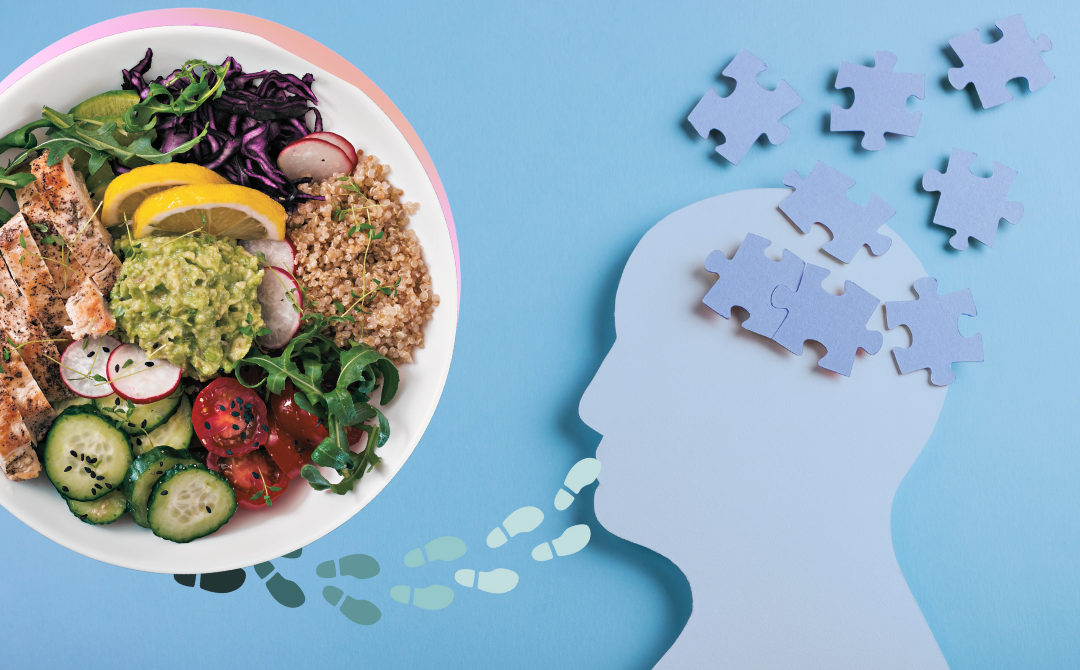SHAH ALAM – Although radiant skin and a toned body typically indicate a healthy diet, the significant effect of nutrition on mental well-being continues to be underestimated.
Given that the World Health Organization (WHO) reports at least 970 million people worldwide suffer from issues like anxiety and depression, the impact of nutrition on mental health merits more focus.
The IMU University specialist in nutrition and dietetics, Professor Dr Winnie Chee, emphasized the strong link between what we eat and our mental well-being, pointing out that the brain depends on vital nutrients to keep functioning properly.
The brain requires nourishment to operate efficiently—it utilizes glucose for energy, draws from proteins to create neurotransmitters such as dopamine and serotonin, and employs fats to form the protective covering around nervous system tissues.
“As our knowledge expands and new research emerges, we are increasingly finding evidence that connects our eating patterns with mental well-being,” she stated.
She mentioned that studies have revealed a significant connection between diet and mental health conditions like depression and anxiety.
She further noted that some research has linked nutrition with the onset of neurocognitive disorders such as dementia and Alzheimer’s, due to shortages in specific nutrients.
THE intricate CONNECTION between DIET and EMOTIONS
Professor Chee highlighted that the relationship between nutrition and mental health works both ways; a healthy diet promotes good mental well-being, whereas individuals dealing with mental health problems frequently encounter difficulties in sustaining adequate nutritional habits.
Your state of mind and actions are shaped by your diet, and numerous behavioral factors impact how you eat.
She mentioned this encompasses emotional eating, scenarios that spark desires for fatty and sugary foods, along with stress-related triggers that lead us to consume more or less food than usual.
She highlighted how children frequently emulate the eating patterns of their parents. Elderly individuals might face issues like restricted availability of healthy food options, trouble with preparing meals, and reduced hunger because of long-term health conditions.
Moreover, Professor Chee pointed out that stress and emotion-driven eating frequently lead to cravings for sweets or fatty foods, adding another layer of complexity to the relationship between dietary habits and general health.
She mentioned that these patterns can lead to a cycle which negatively impacts both mental and physical well-being.
INCORPORATING LOCAL CUISINE FOR BETTER MENTAL AND PHYSICAL WELL-BEING
Although diets such as the Mediterranean model are praised for their advantages, they might be expensive or not feasible for local communities.
Professor Chee suggested incorporating the principles of this diet into a Malaysian setting, naming it the “MediterrAsian Diet.”
This method emphasizes an active lifestyle, complemented by incorporating plant-based items such as whole grains, beans, nuts, and lentils, all of which contribute significantly to maintaining a healthy digestive system—a crucial element for overall mental wellness.
Professor Chee mentioned that foods like sardines, abundant in Omega-3, along with eggs and chicken, which supply tryptophan for serotonin generation, are equally important.
The ease of following this diet comes from utilizing readily accessible and inexpensive local choices.
She mentioned that leafy greens, tropical fruits such as papayas, and legumes are plentiful in Malaysia, which makes it simpler to include these nutrient-rich items in everyday dining.
Mindful Eating: The Secret to Healthier Decisions
To truly reap the benefits of a healthy diet, being mindful while eating is crucial.
Professor Chee pointed out that contemporary living styles, along with urban development and the abundance of ready-made meals, have resulted in a decrease in nutritious dietary practices.
“Being mindful is essential for tackling this issue, and you can begin by observing your eating behaviors or what sets them off. This way, you might discover whether stress, boredom, or tiredness leads you to consume more,” she said additionally.
Practices such as meal planning, having healthy snacks readily available, and utilizing apps to monitor eating patterns can greatly enhance one’s diet. For instance, bananas or ready-to-eat fruits serve as practical and nourishing options for those with hectic lifestyles.
MALAYSIA’S DIET CHALLENGES
Even though Malaysia offers plenty of healthy food options, she pointed out from the 2023 National Health and Morbidity Survey that an overwhelming 95 percent of Malaysians fail to eat the suggested five servings of fruit and veggies each day.
Moreover, half of the people have a sedentary lifestyle, with 84 percent not participating in consistent physical activity.
“Five servings daily isn’t much — think of it as about one and a half cups of veggies such as greens during meals, along with two pieces of fruit like papaya or pineapple,” she explained.
Even with accessible and healthy locally grown foods available, Professor Chee highlighted that numerous Malaysians continue to fall short of meeting suggested nutritional guidelines.
A COMPREHENSIVE STRATEGY FOR MENTAL WELL-BEING AND DIETARY CARE
Looking ahead, Professor Chee emphasized the importance of increasing education and raising awareness to enable Malaysians to make well-informed decisions about their diet.
She emphasized the significance of integrating a diversified, nutritionally rich meal plan alongside consistent exercise routines to enhance mental well-being and general wellness.
She emphasized that educating Malaysians extensively is necessary so they can adopt an engaged and accountable stance towards their consumption habits. A balanced diet rich in various nutrients coupled with regular exercise is crucial not only for maintaining mental health and well-being but also for reducing the risks associated with numerous severe health issues.
As society faces growing mental health issues, nutrition’s importance as a fundamental pillar of well-being should be brought into the limelight.
Through deliberate food selections, people can proactively enhance both their bodily wellness and their emotional fortitude.
